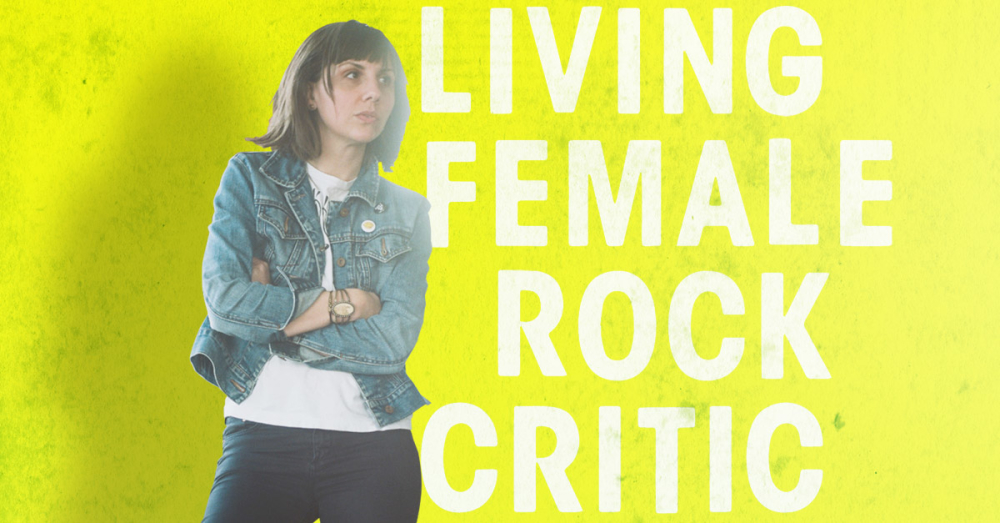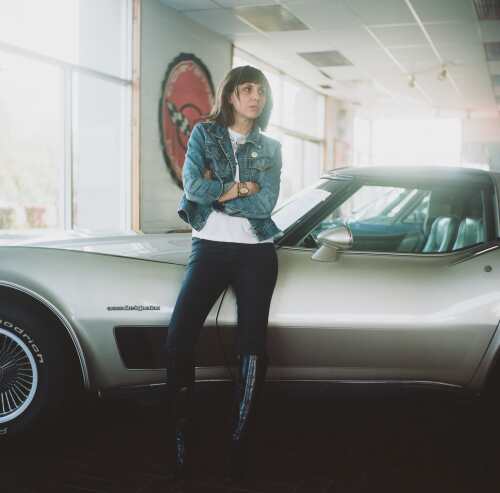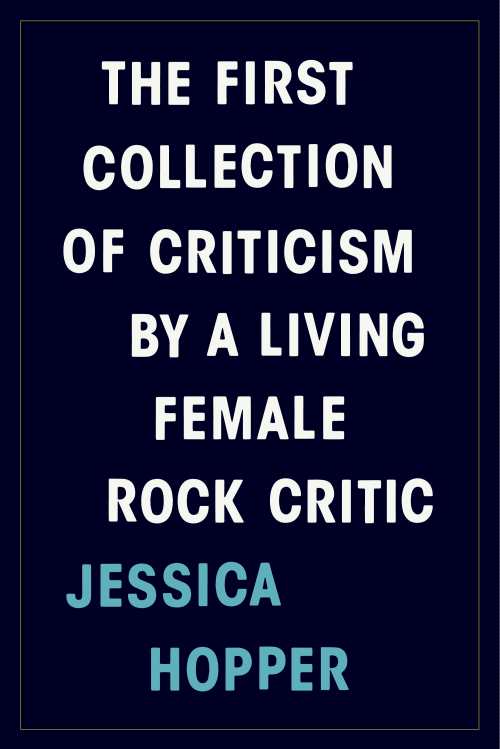Writing out of Turn: Female Rock Critic Tells Experts Where to Put Their Advice

No one cares about a book of rock criticism written by a person who is still alive—at least that’s what Jessica Hopper was told when she started researching what it would take to publish a compilation of her own essays. Fortunately for us, Hopper ignored naysayers, choosing to publish her collection of rock criticism while still alive and kicking. On top of the impetus she had to follow her heart’s desire, the fact that Hopper is a female rock critic in a traditionally male-dominated field makes her compilation that much more compelling.
Hopper’s upcoming book, The First Collection of Criticism by a Living Female Rock Critic, (Featherproof Books, 2015), compiles her published essays from 2003 to the present, covering musical artists from Lady Gaga to the more obscure Screaming Females. Whether interviewing St. Vincent—with her polished persona and lack of divulgence—or attending a Pearl Jam reunion, Hopper’s critiques are intimate, advanced, and playful.
From a car ride with twenty-year-old Chance the Rapper through his ‘hood to the deconstruction of Lana Del Ray, the author doesn’t shy away from larger societal themes or from challenging America’s mainstream perceptions. Within these packed pages, Hopper reveals the oral history of the ‘90s grunge band Hole to pinpoint what really happened during the recording of Live Through This, reviews the reissue of Nevermind for Nirvana’s twentieth anniversary box set, “Nevermind is a great record, but lord, what a boring thing to offer fans,” and gracefully takes shots at emo music while trying to understand what the female fans are relating to at shows.
She pinpoints the merits of basement shows over crowded impersonal festivals like Lollapalooza, reminisces on her own personal history listening to Dinosaur Jr. as they reunite, then digs into the psychology of our mainstream fascination with Miley Cyrus, stating, “In knowing everything, we find we know nothing.”
Anyone who has been keeping up with pop and indie culture from the 2000s to now will find something to relate to in these entertaining chapters. Below, I interview the author on her career, indie publishing’s role in music history and the book itself.
What role do you feel indie book publishers play in today’s music scene, as well as what came before it?

Jessica Hopper (Photo by David Sampson)
We are at a time right now where there is a very serious interest, across genres and scenes, to catalog music history, especially from perspectives that have otherwise been marginalized in the formal tellings up to this point. It’s doubtful that any major publisher is going to undertake, say, a photobook or memoir about Latino hardcore scenes in the 1980s, or histories that are seemingly “niche” but very important to document—whereas some dedicated small presses know that there are 1,500 readers who will clamor for that book, and understand why books like it are crucial.
In the last decade we have seen a lot of institutional archives opening for things like regional music zines, flyer and poster art, social movements within music like Riot grrrl, and I am really hoping that people research into them brings us new exploration and new scholarship.
What’s the story publishing with Featherproof Books? Did you shop around or did you have a direct goal to publish with them?
Tim Kinsella, who helms Featherproof, recently inherited it off of friend who had run it for its first decade. I have known Tim for twenty years, and was the publicist for I think eleven of his albums with Joan of Arc and other bands he played in. He introduced me to my husband, and our cat is named for him—so he’s something like family. I had wanted to do an anthology of my work for years, and people had been asking me about it for a decade; I was slated, early on, to do it with Akashic—but it was eternally on the back burner.
After the success of my first book, The Girls’ Guide to Rocking, I had interest from some major publishers about a next book. I really felt like the time was right for a collection but was actively discouraged from doing it. So I thought, I need to find a publisher who would really delight in selling 10,000 copies of an essay collection, not someone who sees that as a failure. And about a week later, Tim called me and asked if I would be the first book out of the gate for his new endeavor with Featherproof, and I said yes.
Have you had many beacons ahead of you in female rock-critic trailblazers, or did you often feel you were in the dark breaking new ground?
Since music and music criticism are two fields that have been male dominated for so long, and because of how we record and acknowledge women’s place in them, every woman is forever seemingly the first and often operating with the sense that she is alone. It’s a kind of mythology of being “first”—there are often dozens of women before each of us, but often their trail was just never marked. There should have been forty women before me—every woman I know in music journalism has a book in them. There were absolutely beacons in front of me.
The reason I even had the idea that I could do this as a job was that I grew up reading Terri Sutton’s criticism in Minneapolis City Pages every week as a teenager, and she was blunt and funny and feminist and could just turn an album inside out. The title isn’t about how I am a sort of magical genius or figurehead, but it’s about planting that flag that points out, OK we need to officially colonize this space now, but also makes it so no one can say there is no precedent for a book of feminist-minded criticism by a young female writer.
This is what happened to me when I talked to people about this book. I was told I was not canonical, that Rob Sheffield and Chuck Klosterman were the special exceptions to the rules that music essays don’t sell, and that anthologies were for once you are dead. I wasn’t interested in waiting until I was dead or had permission, and I wanted to try to help throw the door open for anyone else that is being fed those same lines.
What words of advice do you have for future female rock critics and musicians—those females sitting in their rooms poring over indie sites and forums to find the best music, going to house shows, recording their own albums?
Don’t wait for permission, just do it.

Daughter of classical pianist Kendall Ross Bean, Kyrsten Bean is an Oakland, California-based singer, songwriter, guitarist, and professional writer. You can follow her on Twitter @kyrstenbean
Kyrsten Bean
